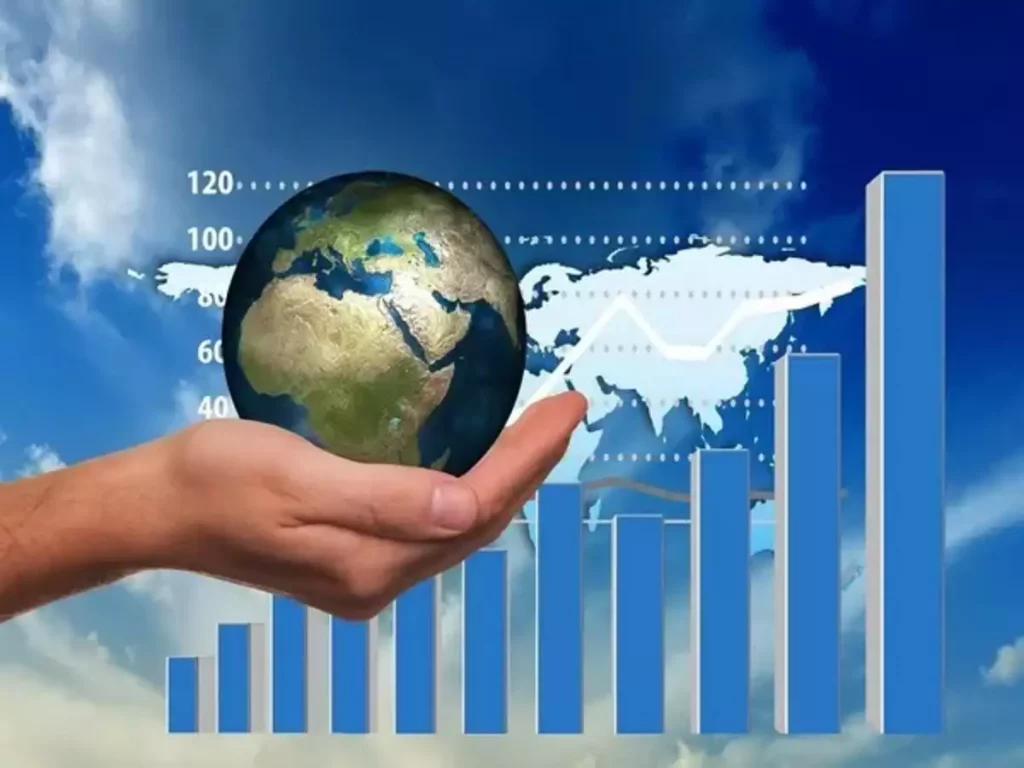The global economy is experiencing turbulent times, as trade wars and tariffs create ripple effects that extend far beyond the borders of the nations directly involved. One of the most vocal critics of rising protectionism is the International Monetary Fund (IMF), which has consistently warned of the adverse consequences tariffs could have on global inflation, economic growth, and stability. Recently, the IMF has issued stark warnings regarding the US’s continued imposition of tariffs on various economies, particularly China, signaling that such protectionist measures could have broader implications for global markets. But are these warnings justified? Is the IMF’s stance a prudent approach, or is it an overreaction to an increasingly fragmented world trade system?
This article examines the IMF’s recent statements about US tariffs, their predicted effects on global inflation and growth, the need for international cooperation to mitigate negative outcomes, and the potential risks of a global recession. We will explore both the economic rationale behind the IMF’s concerns and the counterarguments that challenge the notion of widespread harm caused by tariffs.
Summary of IMF’s Recent Statements on US Tariffs
The IMF has been outspoken about the dangers of escalating tariff wars, particularly between the United States and its trade partners. In a series of reports, the IMF has expressed alarm over the rising trend of protectionism, which has been amplified by the US administration’s decision to impose tariffs on billions of dollars’ worth of imports, most notably from China, but also from other nations such as the European Union, Canada, and Mexico.
In its annual World Economic Outlook (WEO) report, the IMF emphasized that the trade war, if left unchecked, could lead to a significant reduction in global trade volumes, slowing economic growth worldwide. The IMF’s managing director, Kristalina Georgieva, has consistently warned that tariffs undermine the global trading system, and that a world in which countries embrace protectionism could lead to rising inflation, decreased investment, and heightened uncertainty.
The IMF argues that the economic benefits of protectionist policies are often overstated, and that in practice, tariffs generally lead to higher prices for consumers and businesses. For instance, the US’s tariffs on Chinese goods have led to increased production costs for American companies that rely on imports, which are often passed down to consumers. Furthermore, retaliatory tariffs imposed by China and other nations on US exports have led to a drop in demand for American products, affecting various industries, including agriculture and manufacturing.
In its warnings, the IMF calls for a shift toward international cooperation and multilateral trade agreements as the antidote to the harmful effects of tariffs. The IMF suggests that countries should work together to resolve trade disputes rather than escalating them, as the global economy’s interconnectedness means that no nation can remain insulated from the consequences of protectionism.
Predicted Effects on Global Inflation and Growth
One of the IMF’s primary concerns about tariffs is their impact on inflation. Tariffs, by design, increase the price of imported goods, which can translate into higher consumer prices. In economies that heavily depend on imports—such as the United States—tariffs on foreign goods can lead to higher costs for everyday products, ranging from electronics to food items. The IMF has warned that if tariffs continue to rise, global inflation rates could increase, which would put additional pressure on consumers and reduce overall purchasing power.
For example, in the wake of the US-China trade war, the IMF predicted that global inflation could increase by around 0.1% for every 10% increase in tariffs, a seemingly modest rise that could have far-reaching consequences over time. The cumulative effect of higher prices for both consumers and businesses could dampen demand, leading to slower economic growth and lower investment, particularly in emerging markets that are more vulnerable to rising costs.
Higher inflation can also prompt central banks to raise interest rates in an effort to control price levels. This, in turn, could increase borrowing costs for businesses and households, further slowing economic activity. In the US, where the Federal Reserve has already begun tightening its monetary policy in response to inflationary pressures, the imposition of tariffs could exacerbate inflationary trends, undermining efforts to achieve stable and sustainable growth.
The IMF’s forecasts for global growth have already been downgraded in response to the trade conflict, with the organization warning that global GDP could be lower by 0.3% to 0.5% in the coming years if trade barriers continue to rise. The IMF’s predictions are not just speculative; they are based on rigorous modeling of the potential effects of tariffs on international trade flows, investment patterns, and consumer behavior. These projections serve as a stark reminder of the interconnectivity of the modern global economy and the far-reaching consequences of trade disruptions.

Recommendations for International Cooperation
In its recent statements, the IMF has repeatedly emphasized the need for international cooperation to address trade disputes and prevent the global economy from sliding into a protectionist era. The IMF advocates for multilateral trade agreements, such as the World Trade Organization (WTO), to play a key role in resolving conflicts and ensuring that global trade remains open and competitive.
The IMF’s calls for cooperation are based on the belief that a multilateral approach to trade disputes is the most effective way to address grievances without resorting to the negative side effects of tariffs. In particular, the IMF stresses that the WTO provides a neutral platform for countries to resolve trade disputes, ensuring that solutions are reached through dialogue and negotiation rather than unilateral action.
The IMF’s position aligns with the broader economic consensus that free and fair trade is a fundamental pillar of global prosperity. According to the IMF, the global economy benefits when countries can trade with one another without the artificial barriers created by tariffs, and that cooperative approaches to resolving trade tensions are the best way to maintain economic stability.
For example, the IMF points to the recent resolution of the US-Mexico-Canada Agreement (USMCA) as an example of the potential for negotiated trade deals to reduce tariffs and open markets. The USMCA, which replaced the North American Free Trade Agreement (NAFTA), was a result of diplomatic negotiations that ultimately led to lower tariffs and a more predictable trading environment for businesses across North America.
By fostering international cooperation, the IMF believes that the global economy can avoid the harmful consequences of escalating trade wars and tariffs and preserve the principles of free trade and economic collaboration.
Analysis of Potential Recession Risks
The IMF’s warnings about tariffs are not just about inflation and growth; they are also about the broader risks to economic stability, including the potential for a global recession. The IMF has consistently warned that prolonged trade tensions could push the global economy toward recession, particularly if countries engage in competitive devaluations or increase tariffs to protect domestic industries.
If tariffs continue to rise and trade barriers proliferate, global supply chains could be severely disrupted. Many industries, particularly those in the technology and automotive sectors, rely on cross-border supply chains that are highly efficient and cost-effective. Tariffs could force companies to relocate manufacturing operations, seek new suppliers, or increase production costs—all of which could lead to higher prices for consumers and reduced economic activity.
Moreover, as tariffs continue to undermine business confidence and increase uncertainty, investment flows could be impacted. The IMF’s analysis suggests that uncertainty about future trade conditions could cause businesses to delay or reduce investments in both developed and developing markets. This reduction in investment could lead to slower productivity growth, which, in turn, would dampen economic expansion and increase the likelihood of a global recession.
The IMF’s concern is that if trade tensions persist, the global economy could enter a period of stagflation—characterized by slow economic growth, high unemployment, and rising inflation—making it more difficult for central banks to stimulate growth and stabilize the economy.
Conclusion
The IMF’s recent warnings about the dangers of tariffs are not alarmist, but rather a reflection of the real economic risks that protectionism poses to the global economy. Tariffs can raise inflation, slow growth, and exacerbate global recession risks. The IMF’s call for international cooperation and multilateral trade agreements is a timely reminder that a fragmented global trade system can lead to negative consequences for all nations, rich and poor alike.
In the coming years, the success of global efforts to resolve trade disputes through diplomacy, rather than tariffs, will play a critical role in determining whether the world can avoid the pitfalls of protectionism and continue to enjoy the benefits of open trade. While tariffs may provide short-term protection for domestic industries, their long-term consequences could be far-reaching, damaging both the global economy and the well-being of consumers worldwide.





























